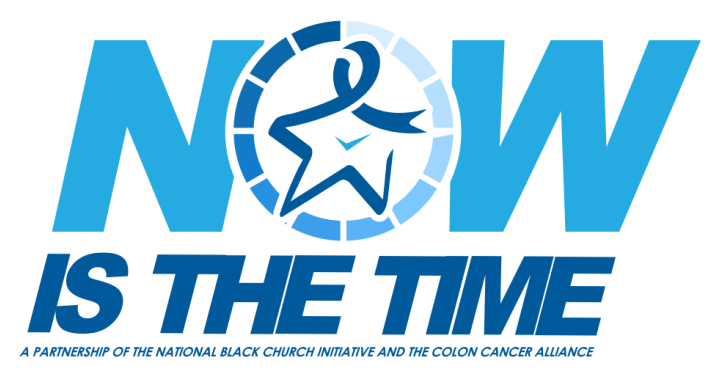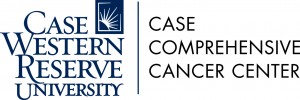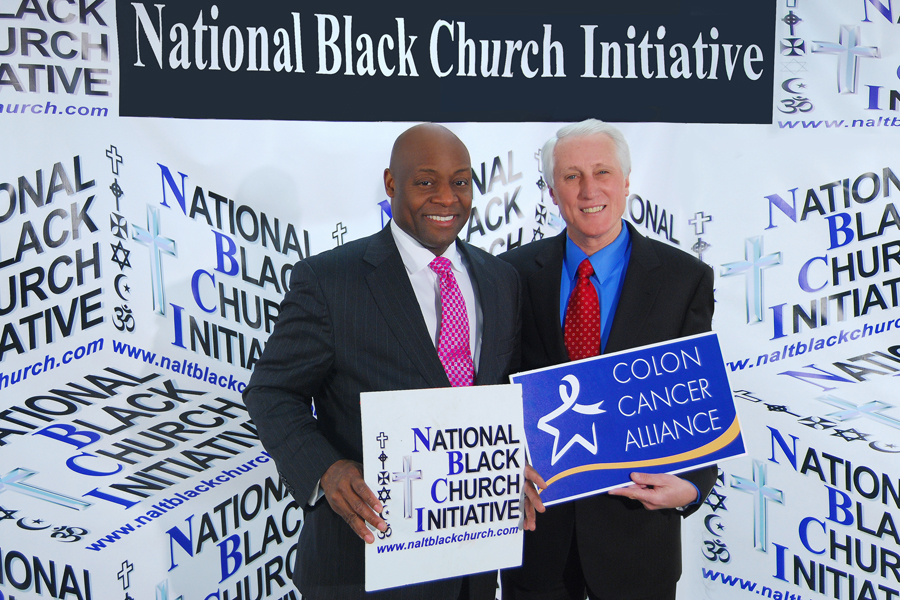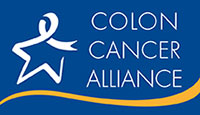Colorectal Cancer
Colon Cancer – A Preventable Tragedy
A National Faith – Based Strategy
 The National Black Church Initiative (NBCI) and the Colon Cancer Alliance have established a unique partnership dedicated to preventing colon cancer in the African American community.
The National Black Church Initiative (NBCI) and the Colon Cancer Alliance have established a unique partnership dedicated to preventing colon cancer in the African American community. Read more about the
Read more about the"Now is the Time" campaign!
Colorectal cancer is the second deadliest form of cancer in men and women, yet the most preventable. African Americans have the highest colorectal cancer incidence and mortality rates of all racial groups in the United States.
The U.S. Census Bureau estimates that there are nearly 42 million African Americans living in the country, comprising about 13 percent of the total population. Of that population, the U.S. Cancer Statistics Working Group estimates that approximately 18,000 African American men and women will be diagnosed with colorectal cancer in 2013?and in just that same year, 6,850 of them will die from it.
Research from the American Cancer Society shows the death rates for colorectal cancer are about 45 percent higher in African Americans than in Caucasians, and although incidence and mortality rates continue to decrease in both ethnicities, the rates are still higher and declines have been slower among African Americans. The reasons for this are not yet understood.
With staggering numbers like these, education about colorectal cancer, prevention methods and screenings are imperative to saving lives. As part of Colon Cancer Awareness Month, we at National Black Church Initiative encourage you to do your part to spread the word about colon cancer prevention and to get screened.
The U.S. Census Bureau estimates that there are nearly 42 million African Americans living in the country, comprising about 13 percent of the total population. Of that population, the U.S. Cancer Statistics Working Group estimates that approximately 18,000 African American men and women will be diagnosed with colorectal cancer in 2013?and in just that same year, 6,850 of them will die from it.
Research from the American Cancer Society shows the death rates for colorectal cancer are about 45 percent higher in African Americans than in Caucasians, and although incidence and mortality rates continue to decrease in both ethnicities, the rates are still higher and declines have been slower among African Americans. The reasons for this are not yet understood.
With staggering numbers like these, education about colorectal cancer, prevention methods and screenings are imperative to saving lives. As part of Colon Cancer Awareness Month, we at National Black Church Initiative encourage you to do your part to spread the word about colon cancer prevention and to get screened.
NBCI presents Dr. Jaszianne Tolbert, MD and Dr. Justin Callaway, PhD on the 3rd lecture of the National Clinical Lecture Tour, "Getting Control of Colorectal Cancer in the Black Community". Ramona Burress, Associate Dir of Diversity and Inclusion in Clinical Trials, Portfolio Mgt, Janssen R&D Global Development co-hosted this event.
Dr. Jaszianne Tolbert, MD Director, Oncology Clinical Development at Janssen Research and Development, LLC is a Board Certified Pediatrician and Pediatric Hematologist/Oncologist with formal Pediatric Clinical Pharmacology training.
Dr. Justin Callaway, PhD Associate Scientific Director, CRC Interception at The Janssen Pharmaceutical Companies of Johnson & Johnson received his Ph.D. in Microbiology and Immunology from the University of North Carolina at Chapel Hill in December 2014.
Dr. Jaszianne Tolbert, MD Director, Oncology Clinical Development at Janssen Research and Development, LLC is a Board Certified Pediatrician and Pediatric Hematologist/Oncologist with formal Pediatric Clinical Pharmacology training.
Dr. Justin Callaway, PhD Associate Scientific Director, CRC Interception at The Janssen Pharmaceutical Companies of Johnson & Johnson received his Ph.D. in Microbiology and Immunology from the University of North Carolina at Chapel Hill in December 2014.
The American Cancer Society recommends that everyone age 50 and older get screened for colon cancer. However, because African Americans are considered high risk for this type of cancer, some groups, like the American College of Gastroenterology, recommend that screening start at age 45.
It's important to keep in mind that the recommended age to be screened may vary depending on several factors, including family history, age, and ethnicity, among others. Make sure check with your primary care physician to determine when screening is right for you.
If you're still hesitant, check out Dr. Barry Berger's blog post from last month. He debunks some common myths about colon cancer, offering reassurance to those who are uncertain.
 Screening for colorectal (colon) cancer can be a bit, ahem, invasive, but early detection makes this form of cancer the most preventable of all the cancers. Yet, according to a new study, colon cancer is screened for the least.
Screening for colorectal (colon) cancer can be a bit, ahem, invasive, but early detection makes this form of cancer the most preventable of all the cancers. Yet, according to a new study, colon cancer is screened for the least.
It's important to keep in mind that the recommended age to be screened may vary depending on several factors, including family history, age, and ethnicity, among others. Make sure check with your primary care physician to determine when screening is right for you.
If you're still hesitant, check out Dr. Barry Berger's blog post from last month. He debunks some common myths about colon cancer, offering reassurance to those who are uncertain.
Links to Colon Cancer Resources
- The Colon Cancer Alliance toll-free helpline # is: 877-422-2030 This number is answered live Monday - Friday, 9AM - 8PM ET.
This helpline will help people who are considering screening and need guidance as well as those who are diagnosed.
For more information on this program, visit http://ccalliance.org/helpline/index.html - Financial assistance program to support those seeking screening
- Colonoscopy Tips and Tricks page
- With colon cancer, there can be a genetic tie to why people are more susceptible to getting the disease. This page helps provide additional information about this: http://ccalliance.org/genetics/index.html
- As a side note, colon cancer can affect people younger than 45/50. If someone needs information on early onset colon cancer, they can get that info here: http://ccalliance.org/nevertooyoung/
Colorectal Cancers in Black Patients Have Molecular Differences, Cleveland Research Team Discovers
 Researchers at the Case Comprehensive Cancer Center at Case Western Reserve University have identified how colorectal cancer on the molecular level is different in black Americans than in other racial and ethnic groups. The discovery could one day help identify who is at risk for the disease and need to be screened earlier and more frequently.
Researchers at the Case Comprehensive Cancer Center at Case Western Reserve University have identified how colorectal cancer on the molecular level is different in black Americans than in other racial and ethnic groups. The discovery could one day help identify who is at risk for the disease and need to be screened earlier and more frequently.
A Colon Cancer Test That Doesn't Require A Tube 'Down There'? Yes, Please!
 Screening for colorectal (colon) cancer can be a bit, ahem, invasive, but early detection makes this form of cancer the most preventable of all the cancers. Yet, according to a new study, colon cancer is screened for the least.
Screening for colorectal (colon) cancer can be a bit, ahem, invasive, but early detection makes this form of cancer the most preventable of all the cancers. Yet, according to a new study, colon cancer is screened for the least.

